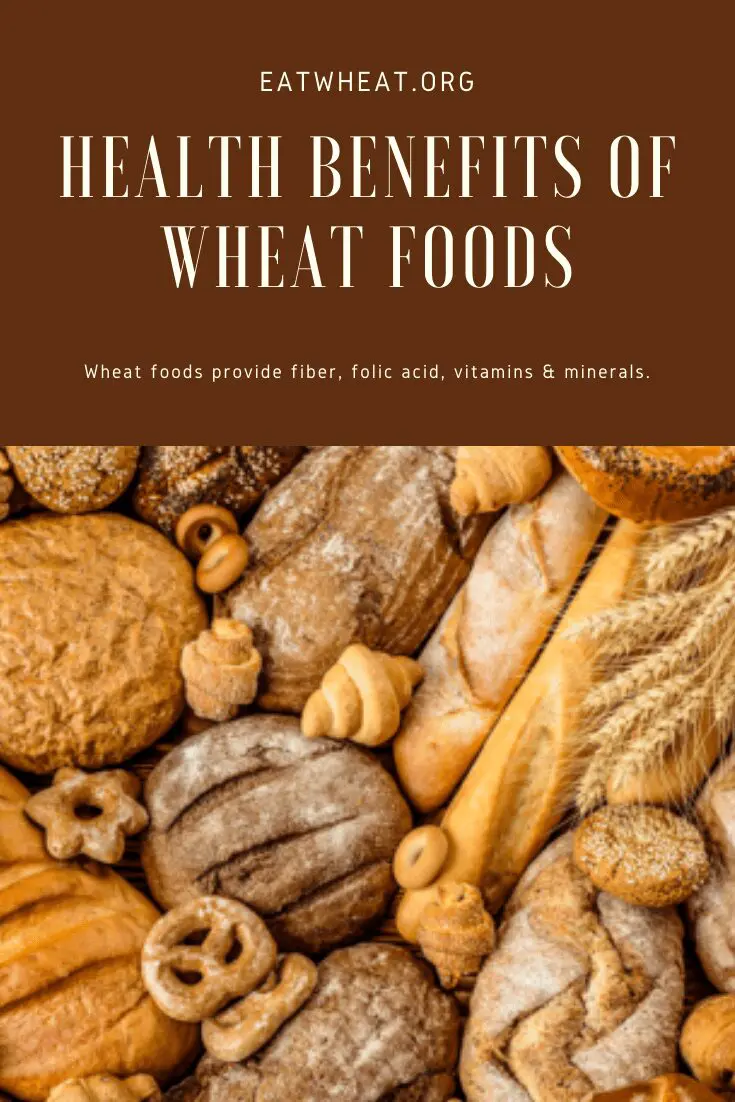What are the Health Benefits of Wheat?
Wheat nutrition provides several health benefits, including fiber, folic acid, vitamins and minerals. Both enriched and whole wheat foods provide many health benefits.
Fiber
Fiber is one of the most needed nutrients for the human body. While it does not supply minerals, vitamins or calories, it benefits your digestive system. Having a high fiber diet can reduce the risk of heart disease, lowers risk of type 2 diabetes, and reduces inflammation which associates with certain types of cancer. Additionally, wheat foods may help prevent colon cancer.
Folic Acid
Folic acid is another health benefit that can be found in wheat foods. One of eight B vitamins, folic acid has many health benefits, including the prevention of neural tube birth defects in newborns. Folic acid has been linked to helping prevent Alzheimer’s disease by protecting the neurons for learning and memory.
Vitamins and Minerals
Wheat foods contain many vitamins and minerals. These include selenium, manganese, phosphorus, copper and the B-vitamin, folate.
Whole Grain vs. Enriched Grain Nutrition
Whole-grain products are made with the whole kernel of grain, which includes the bran, endosperm and germ. Enriched grain products are made with the endosperm only.
The bran (outer layer) contains the largest amount of fiber, the endosperm (middle layer) contains mostly protein and carbohydrates along with some B vitamins, and the germ (inner part) is a rich source of trace minerals, unsaturated fats, B vitamins, antioxidants and phytonutrients.
To identify whole-grain foods, look to see that the first item listed in the ingredient list is referred to as “whole” such as whole-wheat flour.
Wheat Nutrition: Whole Grains
Whole-grain foods are good sources of B-vitamins, vitamin E and protein, and contain more trace minerals and dietary fiber than enriched grain products.
Whole grains contain antioxidants and other healthy plant-based nutrients. Whole grains contain protective antioxidants in amounts near or exceeding those in some fruits and vegetables. They also provide some plant-based antioxidants not found in other foods.
Studies have shown that eating more whole grains may help reduce the risk of heart disease, cancer and diabetes. Studies show that whole grains may help lower triglycerides, improve insulin control, help in weight management, and slow the build-up of arterial plaque.
Wheat Nutrition: Enriched Grains
Enriched grain products contain iron and B-vitamins (thiamin, niacin, riboflavin and folic acid) in amounts equal to or exceeding that in whole-wheat flour. Enriched grain products have more than twice the amount of folic acid as whole wheat.
White flour has been enriched since 1941 with iron and the B vitamins, riboflavin, niacin and thiamin. With this enrichment, pellagra and beriberi have been eradicated from the United States. In 1998, a fourth B vitamin, folic acid, was added to the enrichment formula. As of 2002, a study showed that neural tube defects have decreased by 23 percent following the folic acid fortification in the U.S. grain food supply.
Learn more about the benefits of both whole grains and enriched grains by visiting the Wheat Foods Council.
Author: Marsha Boswell
